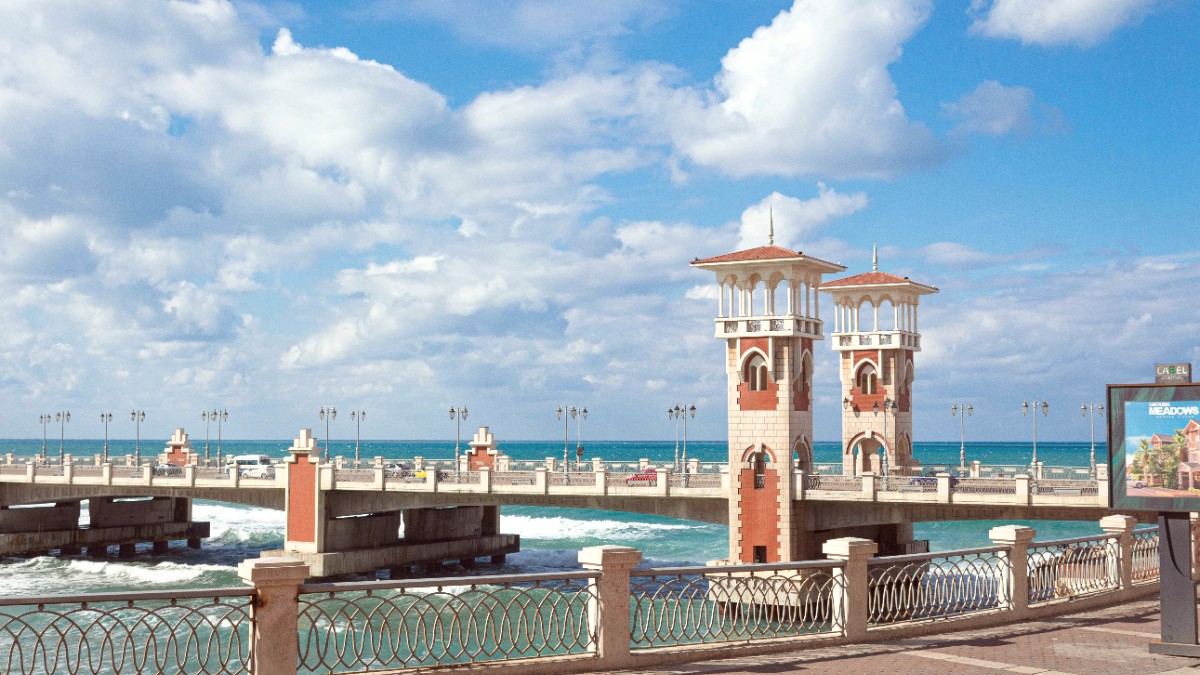
Mediterranean Coast, Egypt
These are the must-visit sites that define Alexandria's historical identity. Each location tells a story of empires, knowledge, and strategic importance.
From the modern Bibliotheca Alexandrina, a tribute to ancient learning, to the Citadel of Qaitbay standing guard over the harbor, these sites paint a picture of the city's enduring legacy.
Late afternoon visits capture beautiful sunsets from the ramparts.
Nearly 27 meters tall, commemorates Emperor Diocletian.
The column stands amidst the ruins of this ancient religious center dedicated to Serapis.
Surrounding area includes underground galleries and sphinxes.
The site is open-air; bring sun protection.
Open daily, typically 9 AM to 5 PM.
Alexandria maintains several museums that share its diverse past, from pharaonic times to its more recent royal history.
Housed in a restored palace. A chronological journey through Alexandria's history.
Displays exquisite jewelry and artifacts of the Muhammad Ali Dynasty in a stunning palace.
Within Bibliotheca Alexandrina, focuses on local archaeological finds.
Spans Pharaonic, Graeco-Roman, Coptic, and Islamic periods.
Well-preserved mummies, Roman mosaics, and Islamic artifacts.
Check individual museum websites for hours and entry fees.
Remains of a Roman theatre, bathhouses, and villas at Kom El Dikka. Tangible glimpse into Roman Alexandria.
West of Alexandria. Ruins of a temple and lighthouse replica; potentially Cleopatra's tomb.
Fouad Street and nearby blocks show 19th and early 20th-century European-style architecture.
Alexandria holds significant sites for various faiths, reflecting its diverse heritage.
Alexandria's coastal location presents natural beauty centered around the Mediterranean Sea.
From popular beaches to the more serene Lake Mariout, the city offers refreshing natural escapes within its urban landscape.
Numerous beaches along the Corniche. Private options (hotels, clubs) offer better facilities. Public beaches can be crowded.
A large saltwater lake south of the city. Significant for local fishing and ecology. Different landscape from the Corniche.
The Corniche itself invites leisurely strolls with continuous sea views and numerous cafes for relaxed observation.
When open, this museum holds an extensive collection of artifacts from the Graeco-Roman period. Often less crowded than other popular sites.
Explore Museums on GetYourGuideExtensive royal gardens present a peaceful escape. Sprawling grounds, walking paths, and the stunning Montazah Palace exterior.
A modern, visually striking bridge connecting parts of the Corniche. Popular with locals for walks, fishing, and photography.
For those interested in cultural performances, hosts various events: classical music, ballet, Egyptian traditional music.
Near the Citadel, this historic district holds narrow streets, a lively fishing port, and authentic fresh seafood restaurants.
These spots show an authentic experience of local Alexandrian life and commerce, though they can be overwhelming due to crowds and energy.
Capture the essence of Alexandria through its diverse landscapes and landmarks.
For attraction tickets, consider using GetYourGuide.
This platform simplifies booking and offers a range of tours and tickets for sites.
A potential flow for experiencing Alexandria's main attractions, maximizing your time and minimizing travel between locations.
Focus on sites from the Graeco-Roman and Roman periods.
Experience Alexandria's modern intellectual heart and its naval history.
Dive into local collections or relax in lush surroundings.
This day allows for a more relaxed pace or exploration based on your interests.
Taxis and ride-sharing apps (Uber, Careem) are the easiest methods for moving between attractions.
Consider walking between closely located sites in the city center or near the Corniche.
Evenings in Alexandria invite relaxing or exploring the city's illuminated landmarks.
The city lights reflecting on the sea create a beautiful backdrop for evening relaxation.
Major sites can be busy, especially on weekends (Friday/Saturday) and public holidays.
Consider a guided tour for historical insight at complex archaeological sites.
Licensed local guides often enhance visits with their knowledge and storytelling.